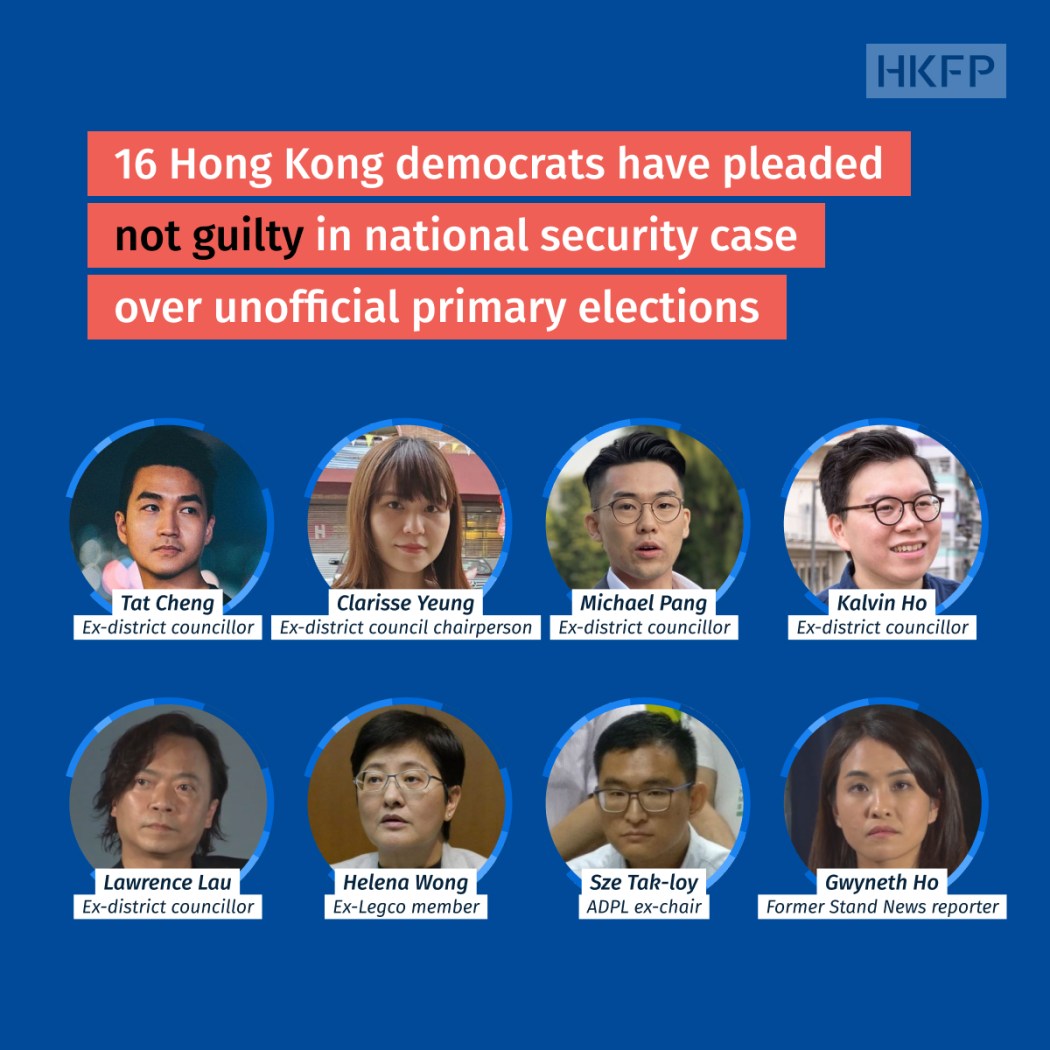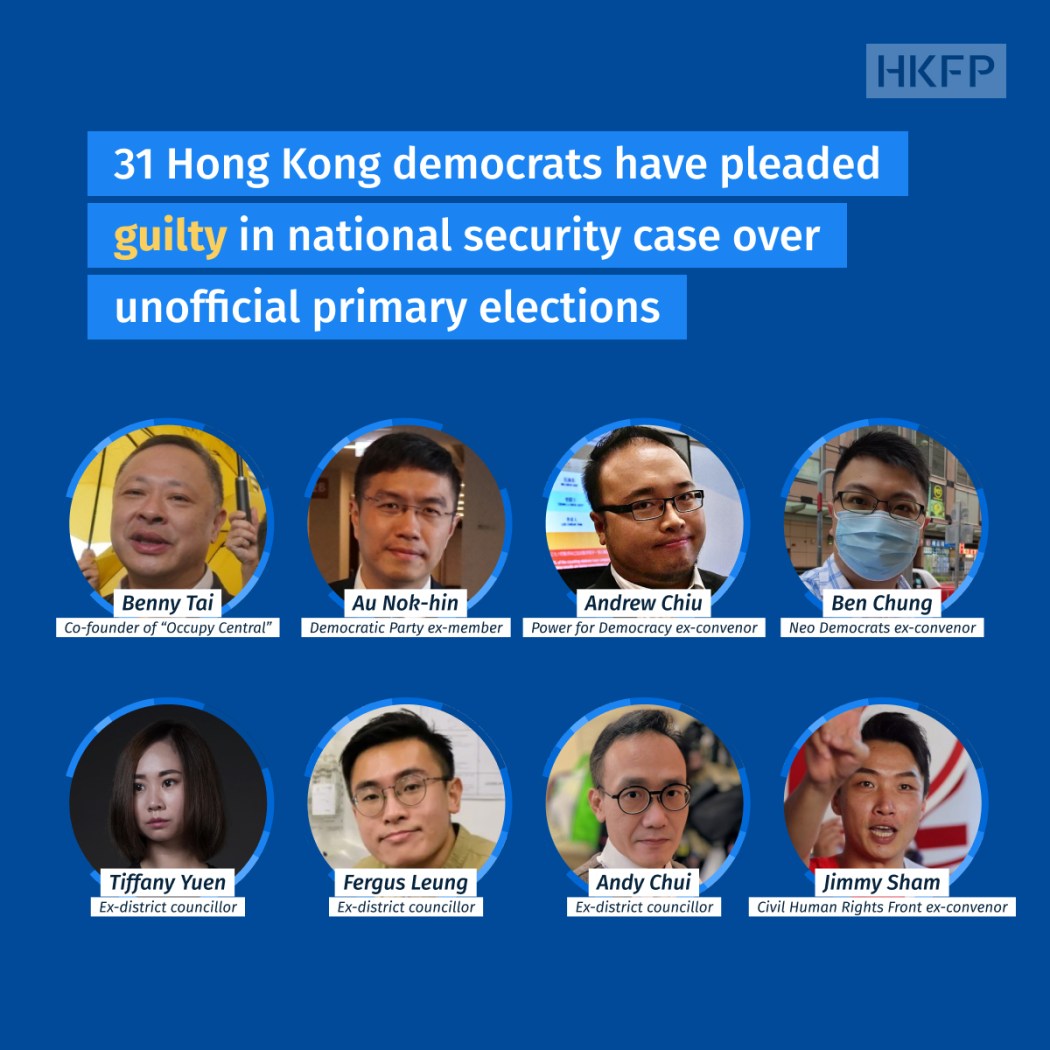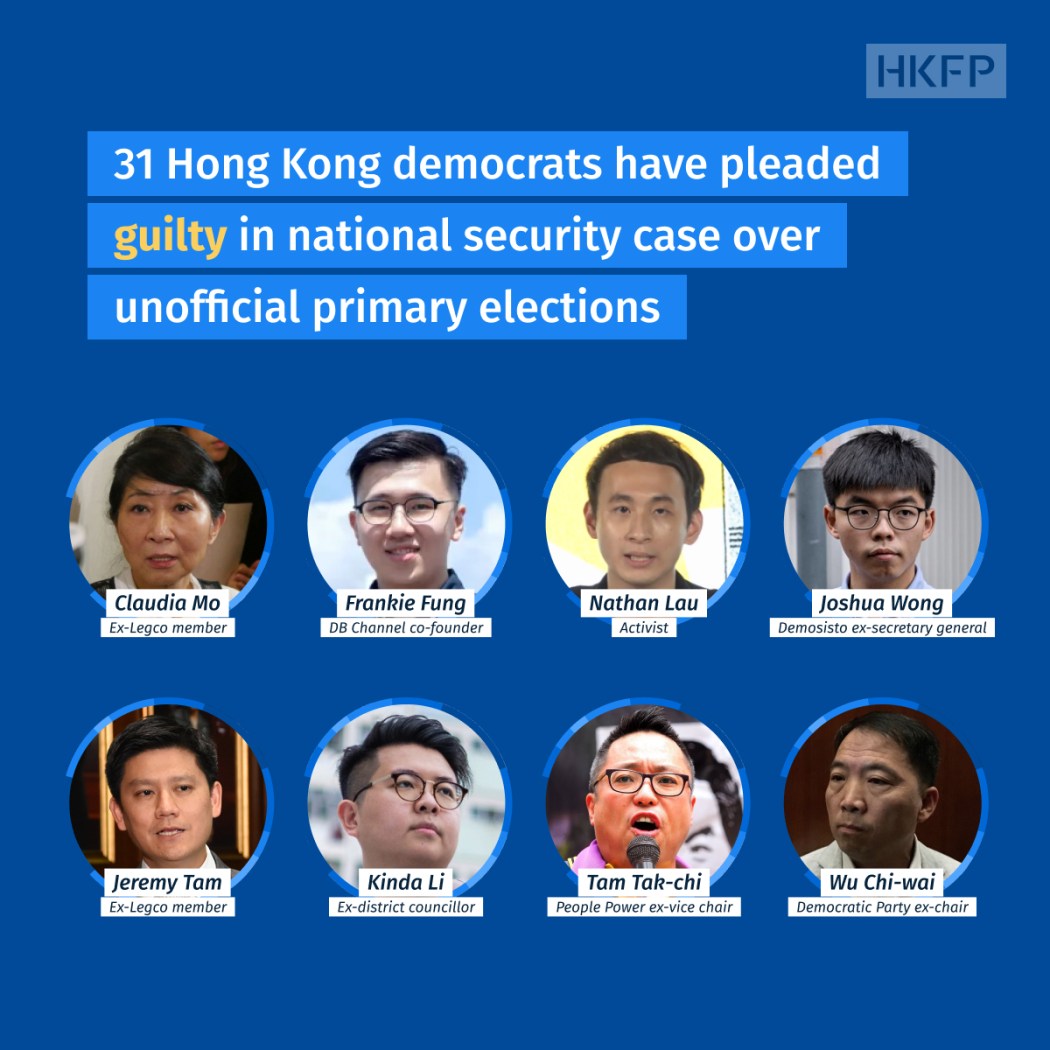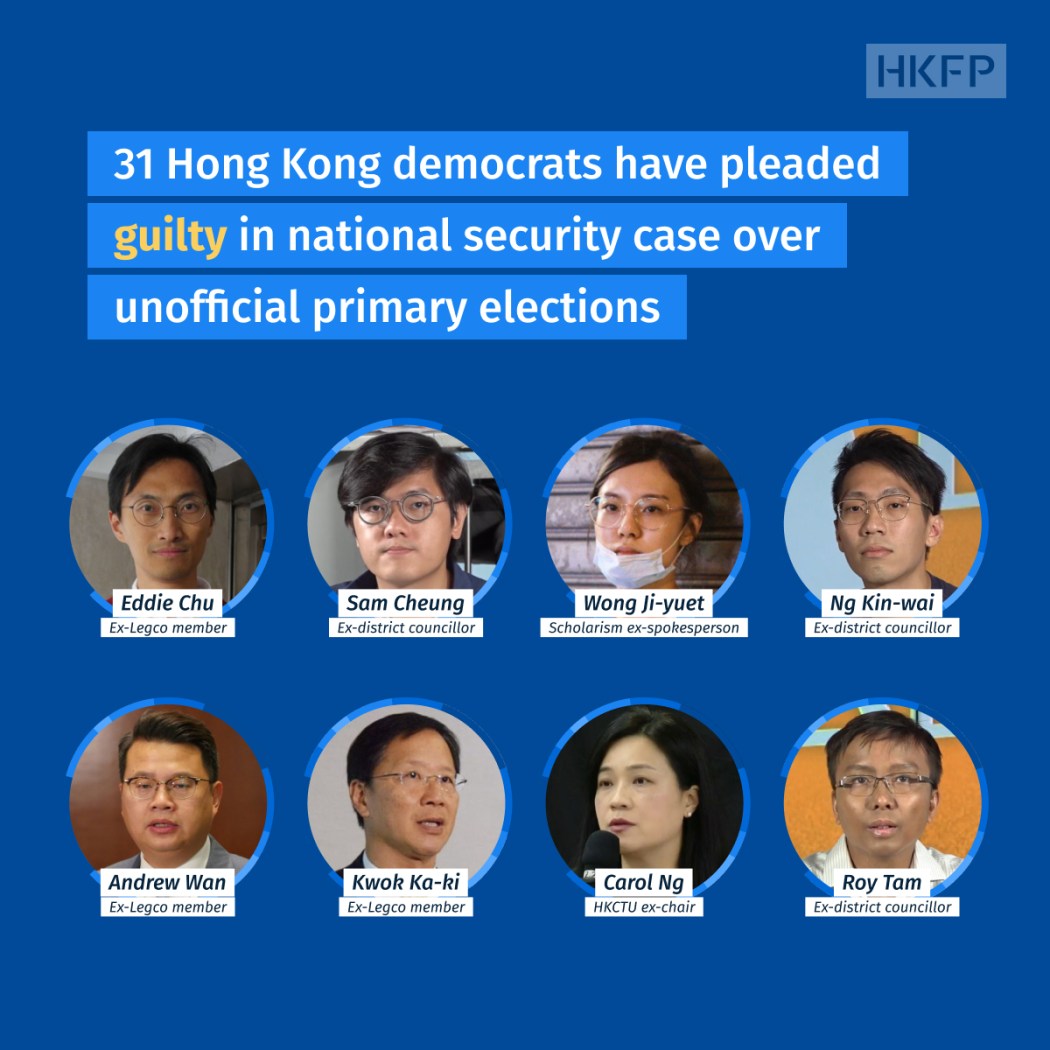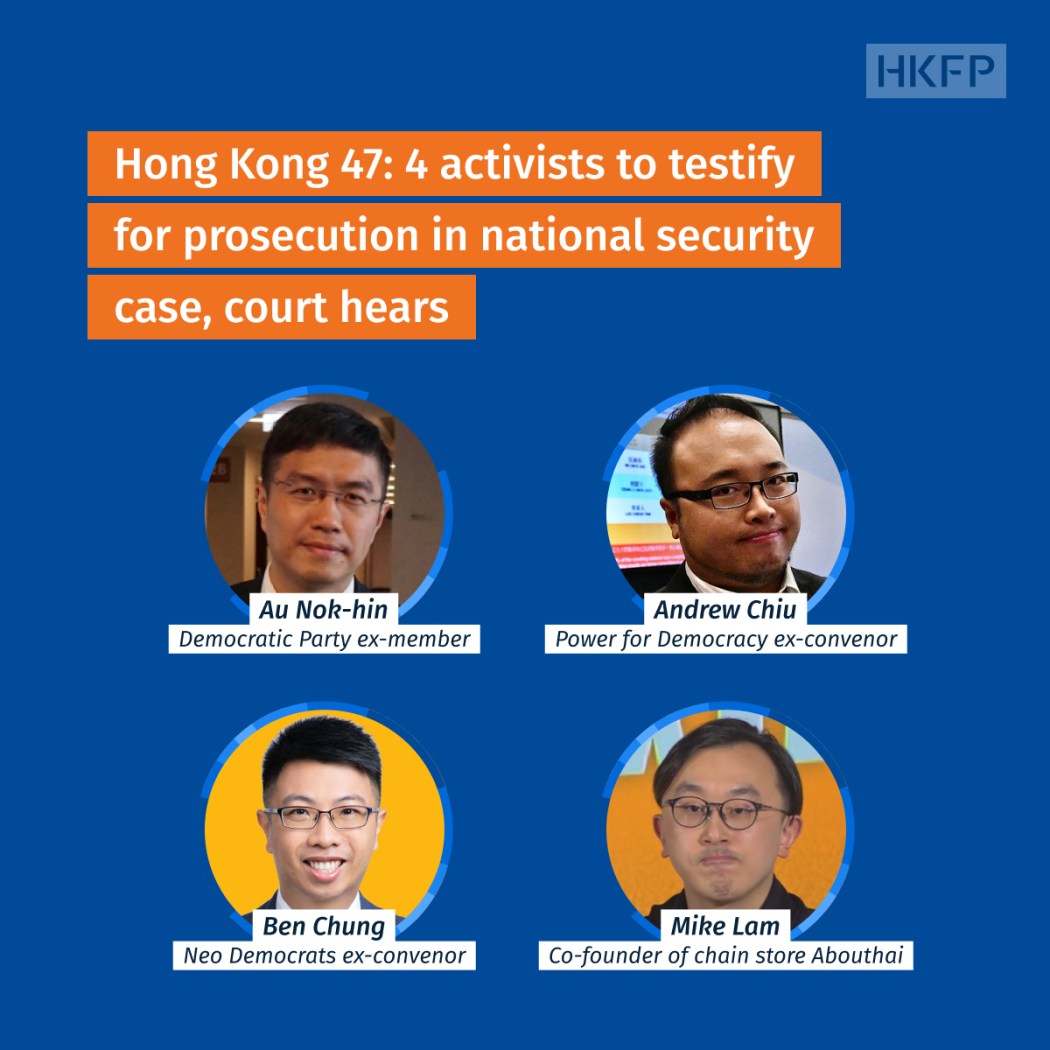A voting campaign advocated by a Hong Kong activist-scholar formed the “backbone” of an unofficial legislative primary election, prosecutors argued during the second day of a high-profile trial involving 47 prominent democrats.
The city’s largest national security trial continued on Tuesday at the West Kowloon Law Courts, with former lawmakers, ex-district councillors, a journalist and other activists facing up to life in prison if convicted of conspiracy to commit subversion.

The 16 democrats on trial stand accused of conspiring with 31 other defendants, who pleaded guilty earlier, to organising or participating in a primary election held in July 2020. The polls aimed to help the pro-democracy camp win a majority in a Legislative Council election. The defendants stand accused of seeking to abuse their powers as lawmakers, if elected, to indiscriminately veto budget bills, force the chief executive to resign, and drive the government into a shutdown.
The offence became law under Beijing’s sweeping security legislation passed in June 2020, as the defendants face three hand-picked judges, and no jury.
‘Mutual destruction’
The prosecution on Tuesday continued to build their case, pointing to a “grand strategy of rebellion” proposed by former law professor Benny Tai. The scholar who taught at the University of Hong Kong admitted to the charge earlier.

Deputy Director of Public Prosecutions (Special Duties) Anthony Chau cited an article by Tai published in the now-defunct Apple Daily in April 2020, entitled: “Ten steps to real mutual destruction – the inevitable fate of Hong Kong.” In the article, described as “elaborate,” Tai set out a 10-step timetable and roadmap that would steer the city towards “mutual destruction,” the prosecutor said.
Timetable of Benny Tai’s “Ten steps to real mutual destruction” – click to view
Step 1 (July to August 2020): The government would extensively disqualify the candidacy of pro-democrats, including the incumbent LegCo Members, in the election. The plan B candidates of the pro-democracy camp would run in the election instead.
Step 2 (September 2020): Triggered by the intervention of Hong Kong & Macao Affairs Office of the State Council and the Liaison Office of the Central People’s Government and the said disqualification, more Hong Kong people would be driven to vote for the pro-democracy camp. Coupled with strategic voting, it would allow the pro-democracy camp to secure 35 seats or more.
Step 3 (October 2020): The chief executive and the Department of Justice would commence judicial proceedings to disqualify LegCo members of the pro-democracy camp. However, as court proceedings would take some time, the pro-democracy camp would continue to dominate the LegCo.
Step 4 (October 2020 to April 2021): All the appropriation applications made by the government to the LegCo would be indiscriminately vetoed by the LegCo. The government could only maintain general operation.
Step 5 (May 2021): The LegCo would indiscriminately veto the budget introduced by the government. As a result, the chief executive would dissolve the LegCo and the operation of the government would be maintained by provisional appropriations.
Step 6 (October 2021): There would be an election for a new LegCo. The pro-democracy camp would have to send the plan C candidates to run since the plan B candidates might have been disqualified as well. Nevertheless, they would still manage to secure more than 35 seats.
Step 7 (November 2021): The LegCo members would indiscriminately veto the budget again. The chief executive would thus have to resign and the government would come to a shutdown.
Step 8 (December 2021): The Standing Committee of the National People’s Congress would declare that Hong Kong had entered a state of emergency and the Central authorities would directly apply the National Security Law of the PRC in Hong Kong. The LegCo would be dissolved and a provisional LegCo would be established. The next chief executive would be selected through consultations. There would be large scale of apprehension and detention of the leaders of the pro-democracy camp.
Step 9 (after December 2021): Street rebellion would exacerbate within the Hong Kong community, thus triggering a very bloody crackdown. Hong Kong people would launch a general city-wide strike, which would bring the Hong Kong society to a standstill.
Step 10 (after January 2022): Western countries would impose political and economic sanctions on the [Chinese Communist Party].
Coordination meetings
Chau also argued that the democrats had held more than 10 meetings since January 2020 to reach a consensus on the primary polls, with the ultimate aim of winning a controlling majority in the legislature.
The consensus included advocating “Five Demands, Not One Less,” a ubiquitous slogan that emerged during the 2019 anti-extradition law protests and unrest. Among the demands were amnesty for the arrested protesters, and establishing an independent commission of inquiry into police behaviour during the protests.
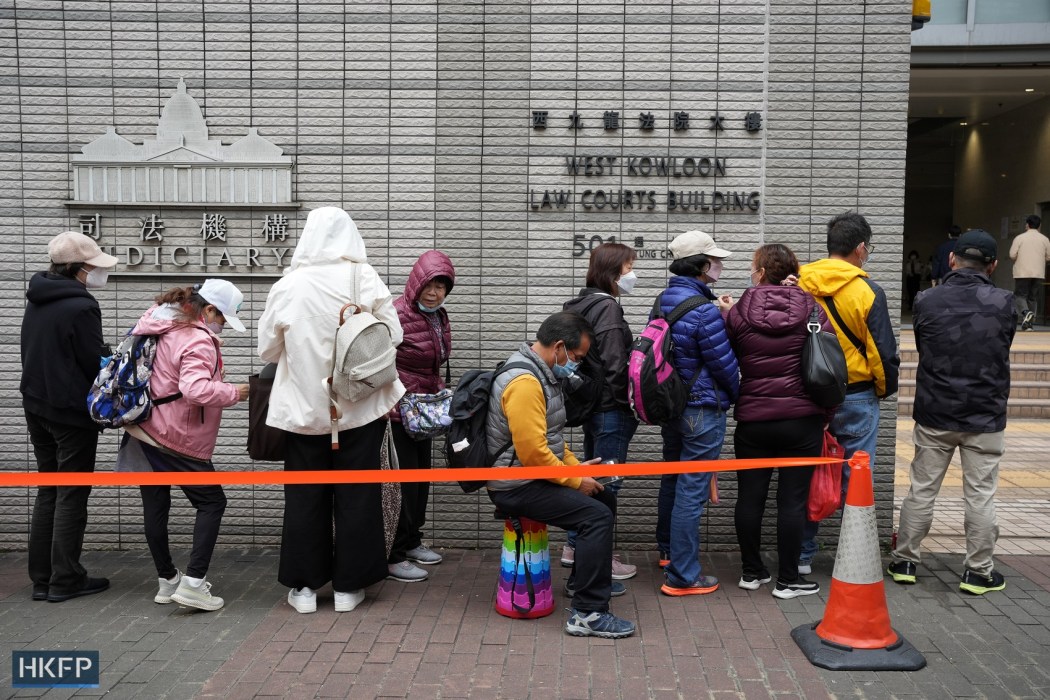
A video was played in court showing a meeting held in May 2020 for the New Territories West geographical constituency. It was attended by Tai, then-district councillors Sam Cheung and Ng Kin-wai, Roy Tam and Henry Wong. Also present was an unnamed representative of then-legislator Andrew Wan, as well as a group of participants who were not identified.
The footage was shaky and shot below a table, with the camera pointing towards Tai from time to time. The unnamed individual who recorded the video also moved the camera frequently, pointing it to the ceiling at times.
According to the prosecution, Tai explained in the video how the agreement to “veto the budget indiscriminately” and shun the official legislative polls if the democrats lost in the primaries should be included in the consensus. He also mentioned the tactic of having “plan B candidates,” in case those who won the primaries were barred from running in the official polls.
If the election was not postponed due to the Covid-19 pandemic, the alleged conspiracy would have been “carried out to fruition,” Chau said.
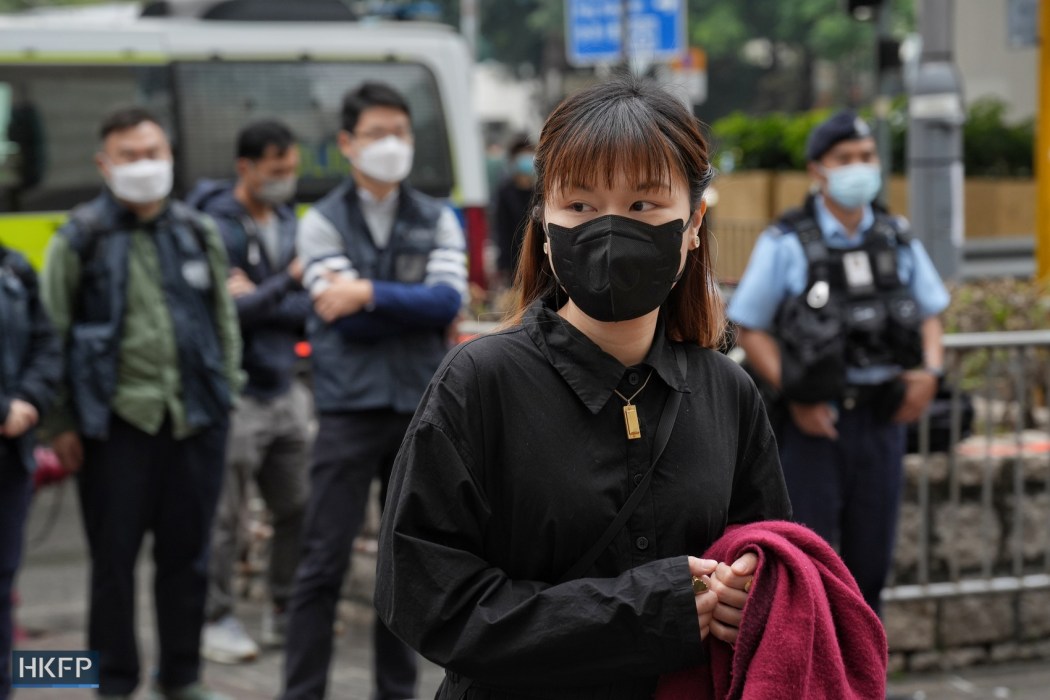
“[Tai] did not wish to create any list specifying the commitment of the candidates running in the primary election which would leave documentary proof of their plot,” the prosecutor told designated national security judges Andrew Chan, Johnny Chan and Alex Lee.
Whilst trial by jury has been used in Hong Kong’s common law legal system for more than 150 years, the security law allows cases to be heard by hand-picked national security judges.
After laying out the general case, the prosecution detailed allegations against individual defendants. Around eight pages of accusations against activist Gordon Ng, better known by his online pseudonym “Lee Bak Lou,” were read aloud in court.
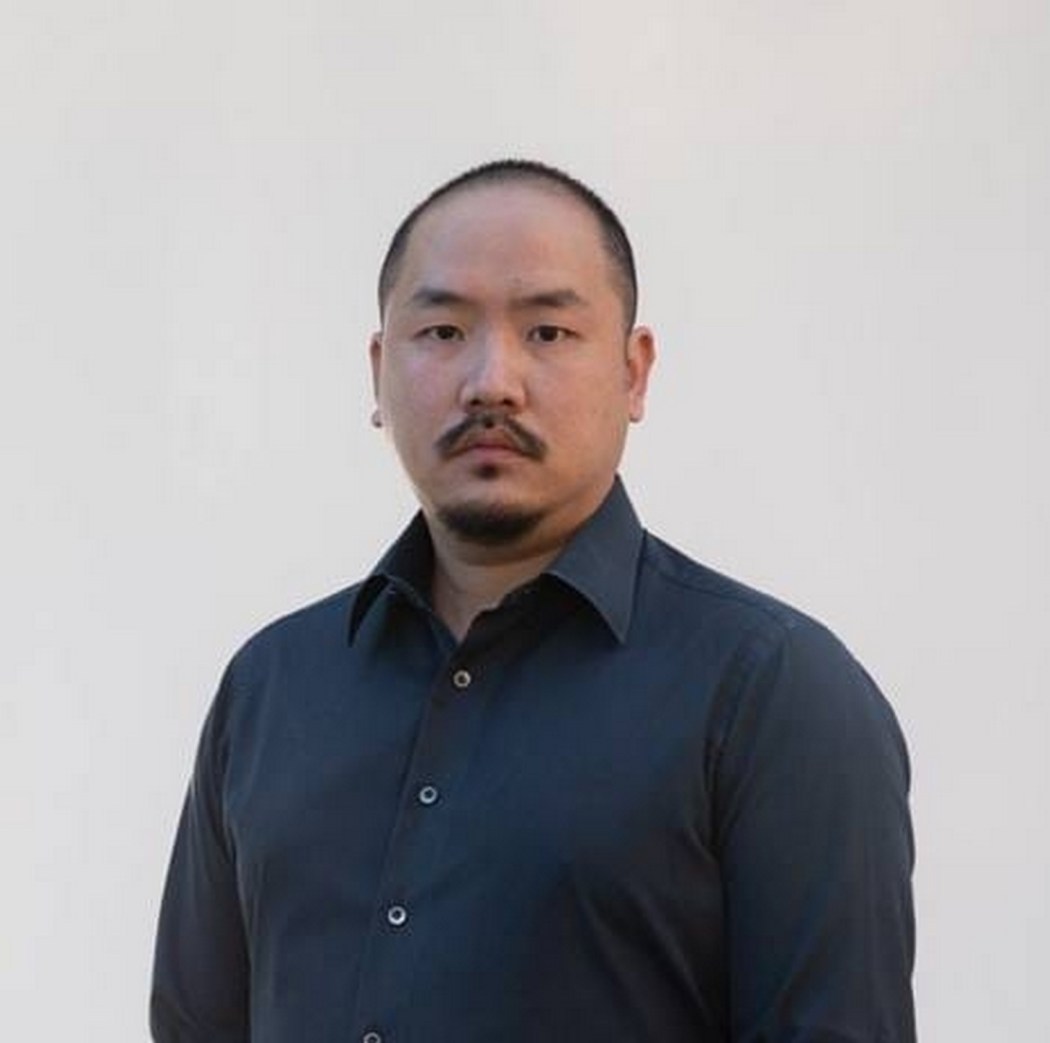
Ng was said to have proposed, and campaigned for, a voting strategy called “Say No to Primary Dodgers.” The activist, described by the prosecution as a supporter of Tai, called on voters not to cast their ballots for candidates who were opposed to the holding of primary polls, those who did not run in the primaries, and those who refused to be bound by the results.
Ng was involved in formulating the plan for the primaries, and his voting strategy “formed the backbone of the primary election,” prosecutor Chau said.
A video by Ng explaining the voting plan was played in court. Some defendants moved their heads to the upbeat rhythm of the background music and laughed while the clip was shown on screens.

The trial will resume on Wednesday morning as the prosecution continues with its opening arguments, which are expected to be completed within this week.
A long queue of around 200 people formed outside the courthouse in Sham Shui Po again on the second day of the trial, with some people arriving on Monday night. One man told HKFP that he did not know what he was lining up for. Others turned their backs to the reporters at the scene and refused to talk.
In June 2020, Beijing inserted national security legislation directly into Hong Kong’s mini-constitution – bypassing the local legislature – following a year of pro-democracy protests and unrest. It criminalised subversion, secession, collusion with foreign forces and terrorist acts, which were broadly defined to include disruption to transport and other infrastructure. The move gave police sweeping new powers, alarming democrats, civil society groups and trade partners, as such laws have been used broadly to silence and punish dissidents in China. However, the authorities say it has restored stability and peace to the city.
Support HKFP | Policies & Ethics | Error/typo? | Contact Us | Newsletter | Transparency & Annual Report | Apps
Help safeguard press freedom & keep HKFP free for all readers by supporting our team


